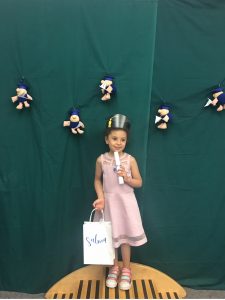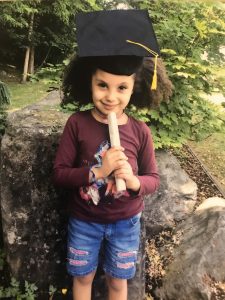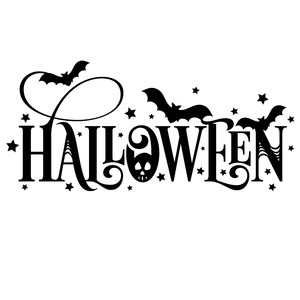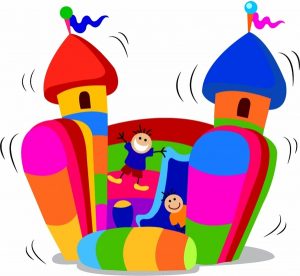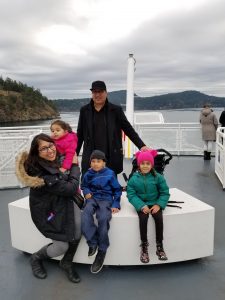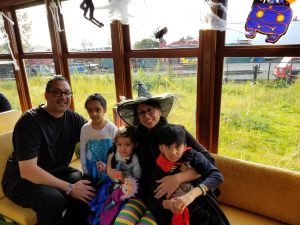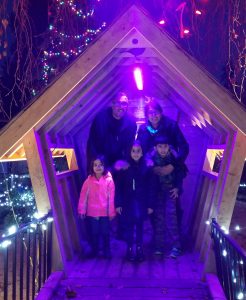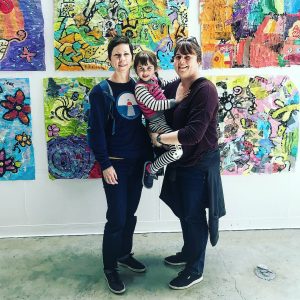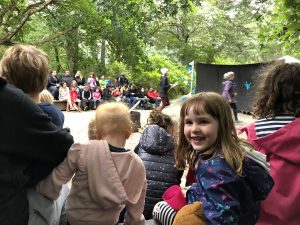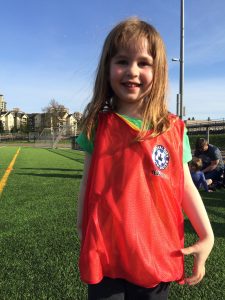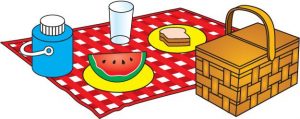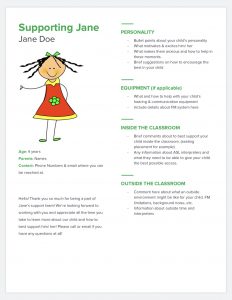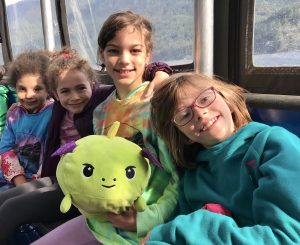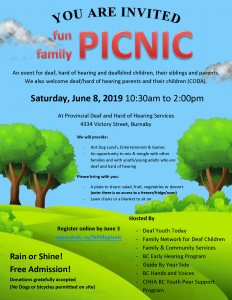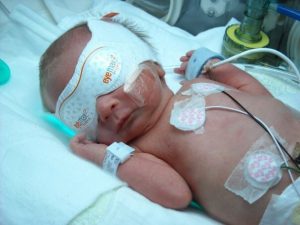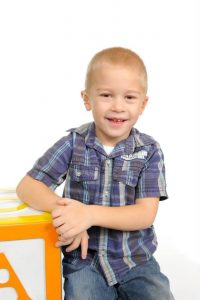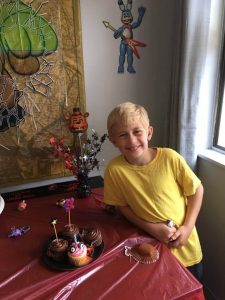By: Rabab Albaharia
My lovely daughter has turned five this year. At this age she has graduated from early intervention services, and after all the graduation excitement and the thrill of starting a new chapter of her life, I thought it would be a good time to stop and look back on our family journey so far.
Looking back, I feel we were lucky and well supported. The fact that she was identified at birth was a blessing. While at that time it was maybe more of a worry and a confusion, I truly wish that I could have seen then what I am seeing today – a happy blooming child that is full of potential. Salma was the first person with a hearing difference whom I had a direct relationship with in my life. I remember holding her for the first time and immediately noticing her smaller, different left ear (she has left microtia). As a mom, I had millions of questions and thoughts racing through my head and heart. Having the phone call with our guide was another tremendous blessing (Guide by your Side is a program where you are matched with another parent of a child of a similar hearing difference to your child). Knowing that there is another parent out there that went through what you are going through and that can say it’s going to be okay was such a comfort.
Out of all the blessings, our enrollment at one of the early intervention service providers was a game changer. Nothing shed the light on assuring the future of our child like getting to meet Deaf and hard of hearing role models. Add to it the warm, kind smiles we were always welcomed with from the centre’s employees, the amazing and varied age appropriate programs, and the opportunity to involve all the family members. Salma’s siblings and extended family were always welcome which played a major role for everyone finding peace with her diagnosis.
During our family journey, many of Salma’s care providers were truly shining stars. As a mom I owe a big part of any success my daughter achieves in the future to our speech language pathologist (SLP). What a miracle she has created! She started working with Salma when she had so few words that they could be counted on one hand and now Salma is graduating a chatterbox. Our SLP has constantly gone above and beyond our expectations. For example, she visited Salma’s community daycare to observe her and suggest strategies to the teacher to give her the best opportunities, and, she travelled to the children’s hospital to attend our ENT appointment when needed. The time she spent advocating for Salma to ensure that she received what she thought was essential to her progress amazed me. Not to mention her dedication to Salma’s sessions. She is truly passionate about her job and has filled our journey with knowledge and joy. Another shining star is our audiologist who always came up with tailored innovative solutions to accommodate Salma’s small ear.
The thing that helped our family the most was getting involved with the Deaf and hard of hearing community and building relationships with other families of Deaf and hard of hearing children. This gave Salma the chance to grow up seeing many others with a whole spectrum of hearing differences, using different kinds of equipment and adapting using various modes of communication. That allowed her to grow fierce and confident and gave her the invaluable sense of belonging.
Salma is the only child in our neighbourhood, at her preschool, and in our circle of friends and relatives who is using a hearing aid. I cannot imagine how emotionally vulnerable she would be if not for her involvement with the Deaf and hard of hearing community.
The support we received did not stop there but extended to include many workshops offered to prepare us for the kindergarten transition. The workshops offered by different agencies were very helpful to let us know what to expect and how to support our child and advocate for her.
Again, our SLP was dedicated to help us explore all of Salma’s options from attending a mainstream school to a specialized school and she supported our family decision, one which we could not have made without her help. And as usual, she extended her help to even attend our first IEP (Individualized Education Plan) meeting.
Things have been challenging on occasion, and sometimes juggling between attending our other kids’ events, work, and the commitment to regularly appear for Salma’s appointments and events seemed impossible. However, seeing her progress helped us prioritize her services, and today, I can say that every effort made was really worth it.
They always say what works for your child makes the choice right and reflecting back I would recommend to each family of a child with hearing difference to explore what supports are available in the community and to try to make use of what works for them.
Our professionals said it was hard for them to say goodbye to our family as Salma graduates. Our reply was: we will definitely keep returning and participating at the different events you hold; our relationship with you is a lifetime partnership.

